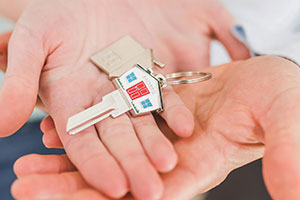
If your creditors file a lawsuit and get a judgment against you, they are allowed to repossess your vehicle and other property, foreclose on your home, and garnish your wages. Not only can you lose the house you live in or the car you have relied on to get to work, but you also lose the value you already made in payments.
Fortunately, it can take several months for creditors to get a judgment, so you have time to act to protect your property. Even if your vehicle has already been repossessed, you may be able to get it back if you act promptly.
Bankruptcy, a legal way to have many debts forgiven, can put you on the road to financial recovery. If you’re a good candidate for bankruptcy, filing can keep creditors from harassing you and seizing your possessions, allow debts to be forgiven, and provide a way for you to keep your assets and begin to rebuild your life.
Types of Bankruptcy that can Stop Repossession of a Vehicle
The United States Bankruptcy Code provides several ways for individuals to file bankruptcy. The most common types are Chapter 7 and Chapter 13.
A Chapter 7 bankruptcy has the power to discharge (eliminate) most or all consumer and/or business debts. Chapter 7 is over in a few months, so you can begin rebuilding credit quickly. You might have to sell property to help pay off creditors, but there are Ohio bankruptcy exemptions that list types of property that cannot be sold. Exemptions can include not only your vehicle, but clothing, equipment used for work (like tools), and household furnishings. If you do not own a great deal of property, your possessions may all be exempt, qualifying you for a “no asset” case.
While Chapter 7 bankruptcy is often referred to as a “liquidation bankruptcy,” the courts do not want to leave you destitute after proceedings. Depending on the value of your assets, you may be able to keep most or all of your property.
Not everyone is eligible for Chapter 7 bankruptcy protection. Your income and debt will be subjected to something called a “means test” to determine whether you qualify. If you are not eligible for Chapter 7, filing for Chapter 13 may still be an option.
Chapter 13 bankruptcy allows you to repay some or all of your debt affordably over a three- to five-year period. This plan is best for those who don’t qualify for Chapter 7, who have a steady income, temporary financial problems, and a desire to repay some of the debt to keep an asset such as a car or a house. If you complete the court-approved payment plan, the debts covered by the plan are discharged.
Have you fallen behind on car payments and find yourself in danger of losing your car to the bank or some other financial institution? Contact the bankruptcy lawyers at our law firm at 614-228-4435 (Columbus), 937-222-7472 (Dayton), or 877-654-5297 (Cincinnati) to discuss your options for avoiding having your car repossessed.
What Can Creditors Do?
When you take out a loan on a vehicle, you sign a contract to make payments on certain dates. If you fall behind on these payments, you are considered to be in default of the contract and the creditor can repossess the vehicle. Creditors do not have to get a judgment before they repossess the property, as long as they don’t break the law by doing anything likely to cause violence during the repossession process.
Creditors may also file a lawsuit and get a court order for repossession, and sometimes the court will issue an order even before you know that a case was filed. Once creditors repossess your property, they usually send default notices within five business days that explain why your vehicle was repossessed and what you must pay to get it back. If you cannot make these payments, you will be notified at least 10 days before the sale that the car will be sold. Even if property cannot be repossessed, creditors may still sue you in court to recover the money you owe. If they win, they may be able to garnish your wages or put a lien on your property.
You can fight back, however. When a creditor sues to get a court order for repossession, you have five days to request a hearing and 28 days to issue a response. During that time, the court won’t issue an order for repossession and you are protected from losing your vehicle. This may be the time you need to get your finances in order and resolve the problem. An experienced bankruptcy lawyer at Fesenmyer Cousino Weinzimmer can help you explore your options.
Bankruptcy Can Stop Vehicle Repossession and Lawsuits
Once you file for bankruptcy in Ohio, there is an automatic stay provision that goes into effect that prevents your creditors from harassing you or taking legal action such as repossessing your vehicle. In addition to preventing lawsuits and eliminating your debts, filing bankruptcy allows you to keep possessions you want by letting you catch up on vehicle or mortgage payments if you are behind.
Contact Us for Help if You Are Facing Repossession in Ohio
Car repossession can happen overnight if you fall behind on car payments. Don’t get caught off-guard by your creditor repossessing your vehicle. If you are facing financial difficulties, an experienced bankruptcy attorney from Fesenmyer Cousino Weinzimmer can help you keep your car and recover financially.
Don’t wait to talk to a bankruptcy attorney. Protect yourself, your family, and your finances by taking action today. Contact our law firm at 614-228-4435 (Columbus), 937-222-7472 (Dayton), or 877-654-5297 (Cincinnati) to schedule a free consultation with an experienced bankruptcy lawyer.


